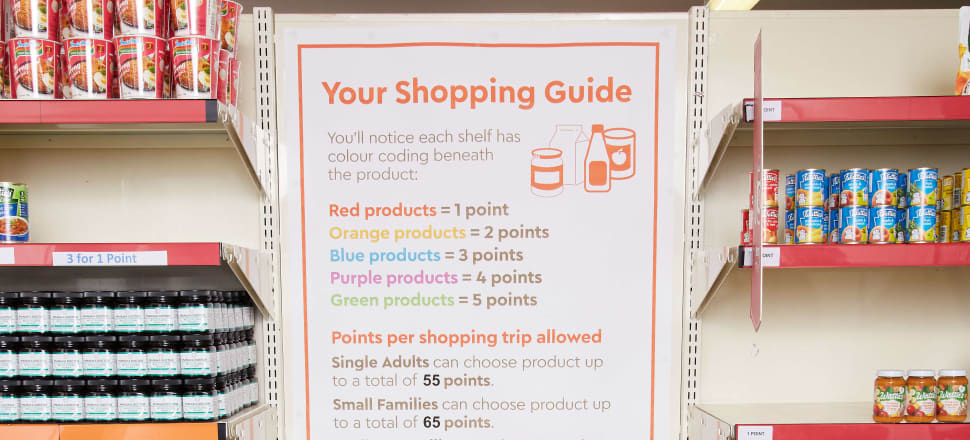
Letting people shop and choose their groceries rather than being handed a pre-made food parcel may seem trivial but there are calls it should serve as a blueprint for the wider administration of social services
The Wellington City Missioner wants government agencies to move away from simply administering social services to the needy, to delivering them in a dignified way.
It has been two years since the City Mission set up a social supermarket in Wellington – a way for people to choose what they need, rather than be expected to be grateful for a box of pre-chosen goods.
READ MORE:
* City Missioner’s plea ahead of the ‘toughest year yet’
* The food bank on the North Shore
The model is working so well four more have been set up and by the end of the year that number could be closer to 20.
Murray Edridge said it gave people dignity and choice, in turn giving them a greater support than simply a collection of food.
"We had a donor recently in the supermarket, who reflected that they will never shop the same way again. Because shopping generally is a chore for most people, but they were able to acknowledge that they have a privilege to be able to shop and choose for themselves and the social supermarket has reinforced to them what a privilege that is."
He said much like the social supermarket idea, there was an increasing need for officials to not just thinking about what was being delivered as a social service, but how.
“It should be this idea that I'm here as a public servant, not just to administer benefits, or not just to give people their bare minimum entitlements, but that I'm here to make a difference in their lives ... and we've had extensive conversations with government agencies about how people are respected in the process.
“Wouldn't it be awesome if every government agency had those three bottom lines of treating everyone with dignity, respect and without judgment, because at the moment that isn't the experience of people when they go into the Work and Income office.”
"It's no longer good enough to just do things for people. I think we've got to have a higher aspiration than that.” - Murray Edridge.
Edridge said the provision of emergency housing was an example where things could be done better.
“My criticism of it is that if you house someone and don't provide enough and appropriate wraparound support, then what are you actually doing? Because if their situation doesn't change and they still require support and nothing's got better for them then what have we actually done?
“And for me, there's just a big value question. This isn't just a nice to do we all feel better about ourselves exercise. This is about saying there's some economic, community, people-value outcomes of treating people better, and working to help them change their circumstances, as opposed to just providing what they need.”
He said there was no getting past the reality some people needing support were not pleasant to deal with, but this should not stop people accessing support that was helpful.
“The commitment we've made, which I would hope that others would also consider, is that we treat people with dignity and respect and without judgment, irrespective of how they behave, irrespective of what they say, irrespective of what they have or don't have.
“Because actually, that's what I think is required of us. If we're serious about actually changing things in our community, because it's no longer good enough to just do things for people. I think we've got to have a higher aspiration than that.”
He said respect often resulted in respect as well.
“We've got an 83 apartment building which is an awesome facility and we use it for transitional housing and just prior to us getting a lease on that building it was refurbished as a boutique hotel and so the rooms are beautiful, absolutely beautiful. And why not? Why shouldn't we give rooms like that to people who are homeless.
"And the interesting part of the story is that we've had virtually no damage in two years. Now, given the cohort of people we're housing in that facility that's quite remarkable. But it reminds us again, if you treat people appropriately, you get a response that reflects that.”







